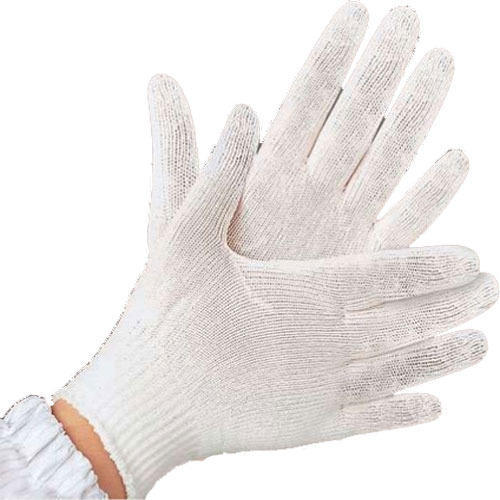What is Nylon?
Nylon is one of the most valuable synthetic materials, and its uses range from activities that are part of everyday life to those that are part of the industrial sector. The material known as nylon is a kind of plastic. It is simple to shape into many day-to-day goods that may help in many comforts. There are so many uses of nylon in daily routine. Along with all this, nylon materials are also used to make gloves. The toughness and resilience of nylon fiber are exceptional, and the fiber itself is rather rigid. Additionally, nylon is easy to dye, and the resulting colors may be very vibrant. In contrast to many natural fabrics like cotton or wool, it is impervious to water and dries quite quickly. Because of this, sportswear and swimwear often make use of the material nylon. Due to all these qualities of nylon, many nylon gloves manufacturers prefer nylon for manufacturing a quality glove.
Advantages of nylon:
Elastic tights are often constructed out of crumpled nylon.
Some varieties of other nylons may even be used instead of plastic for fabricating certain machine materials and accessories.
One of the characteristics of nylon is its durability. It is a crucial property because it can withstand repeated washings. It is possible to combine nylon with other materials, such as cotton or spandex.
Because nylon is artificial material and not an organic fiber, it must be grown on a farm or gathered from cattle; nonetheless, the price of the material is lower because of this.
Nylon gloves:
When dealing with potentially dangerous chemicals and pesticides, it is necessary to wear gloves as gloves shield our hands from getting infections and other forms of contamination. Nylon gloves are valuable in reducing the risk of disease transmission and cross-contamination at workplaces. Coatings of different materials are often used in the construction of nylon gloves. They have a firm grip, they are elastic. They are capable of withstanding abrasion, and as a result, they are strong and durable. Additionally, nylon gloves provide safety against potentially hazardous chemicals as well as infections. The production of gloves made from nylon is growing at a rapid rate. There is many nylon gloves manufacturers who introduces themselves in the marketplace.
Application of Nylon gloves:
Professional gloves coated in polyurethane or nitrile, as well as investigator's gloves made of flexible nylon are the most frequent forms of lightest work gloves. Nylon gloves have virtually eliminated previous kinds of gloves that were traditionally used for general purposes, such as cotton or leather grip gloves. These lighter working gloves are great for accurate and sensitive work that needs to be protected, such as activities involving circuits, laboratory testing, electronics, and medicines.
Nylon gloves have fewer impurities and are more long-lasting than fabric string-knit accessories. There is an excellent choice for use in situations that call for complete cleanliness and the elimination of any possibility of biometric pathogens. Work gloves are made of black or grey nylon that can disguise dust and give some resilience, allowing for longer usage.
How to choose a proper glove?
Our hands are two of the most effective instruments in the job and are also the most often utilized. When it comes to safeguarding these instruments from potential risks on the job, selecting the appropriate gloves is vital. Employees presented with very partial knowledge of why it is necessary to wear protective gloves or even how to pick a glove that is suitable for the task they are engaged in. Choosing the incorrect glove for the work activity often results in an increased risk of damage to the employee as well as decreased productiveness.
Here are some tips to select proper gloves for your work:
Aware of the dangers:
Because each location of employment is unique, supervisors and other members of the team need to save considerable effort in conducting risk assessments for their employees. Hot conditions, dangerous items like shattered glass, and exposure to toxins that may be transferred into the skin are the three primary dangers that every worker must be informed of.
Choosing the appropriate measurements:
It is suggested to wear gloves that suit the size and shape of the person's hands while shielding employees from harmful items and chemical products. These gloves should be comfortable and fit snugly. Some gloves may stretch out with time. Workers need time to make sure their gloves are a good fit. They may need to cover more of their skin with safety clothing like gloves. Nylon gloves manufacturers need to pay careful attention to sizing details while making their products.
Check everything before every shift:
Before the beginning of each shift, workers and supervisors should get into the practice of checking the condition of their protective gloves. The workers can spot possible issues with only a brief visual check. Everyone should check the rips, tears, and other holes in the gloves since they might potentially put employees in danger. Additionally, discoloration and rigidity are also potential warning indicators. The outer material of gloves may have lost some capacity to protect the user from potentially harmful gases and chemicals.
Read more: Invest in the Best Gardening Gloves to Protect Your Hands
When manufacturing a glove, a reliable manufacturer of nylon gloves should take into consideration all of these factors. You can contact N&M safety to find a reliable nylon gloves manufacturers.
Conclusion:
Nylon gloves have a characteristic that makes them impervious to moisture. Nylon gloves have the property of forcing it to the surface of a liquid, where it then evaporates more readily. N&M safety is an emerging brand. They are very skilled in distributing gloves of excellent quality all over the world. They have a very professional nylon gloves manufacturers.

